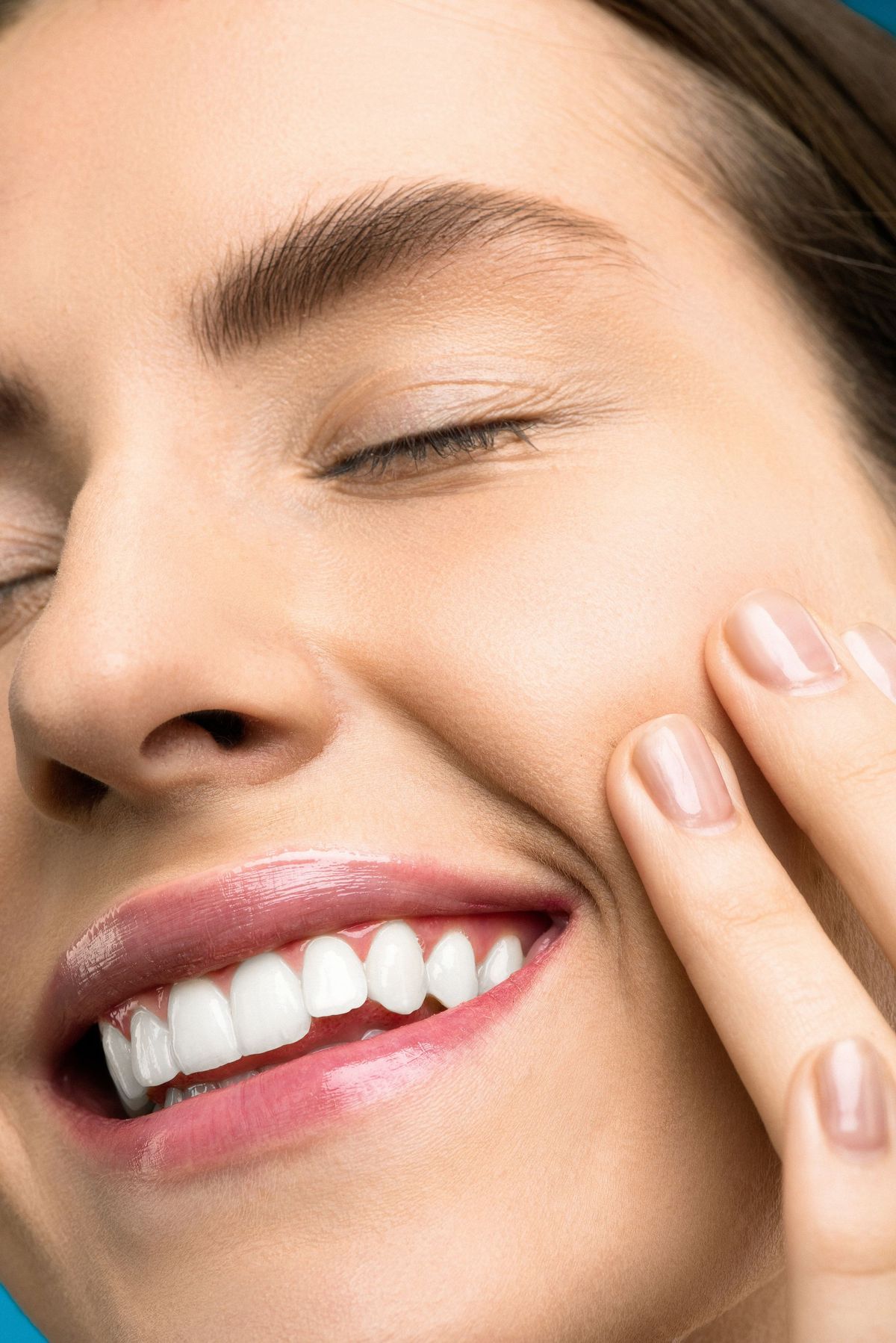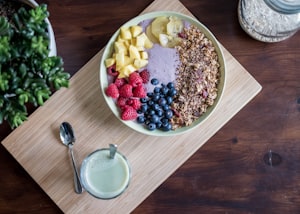Content Summary
In the pursuit of radiant and youthful skin, many individuals turn to a plethora of skincare products, often overlooking the crucial role that digestive health plays in achieving that coveted glow. The link between digestive health and skin conditions has been a topic of increasing interest among researchers and skincare experts. Understanding how the gut and skin are interconnected can be a game-changer in achieving not just a superficial glow but a sustained, natural radiance.
The Gut-Skin Axis
The gut-skin axis is a term that encompasses the intricate relationship between the gastrointestinal system and the skin. This connection is bidirectional, meaning that the health of your gut can significantly impact the appearance and health of your skin, and vice versa.
Digestive Health and Inflammation
A healthy gut is crucial for maintaining a balanced immune system and preventing inflammation, which plays a pivotal role in skin conditions such as acne, eczema, and psoriasis. When the gut is compromised, it can lead to an increase in inflammatory responses, triggering skin issues. Chronic inflammation can accelerate the aging process and contribute to collagen breakdown, leading to wrinkles and sagging skin.
Probiotics and Gut Microbiome
The gut is home to trillions of microorganisms collectively known as the gut microbiome. Probiotics, often referred to as "good bacteria," play a crucial role in maintaining a healthy balance within the gut. When the microbiome is imbalanced, it can result in digestive issues and systemic inflammation, ultimately affecting the skin.
Consuming probiotic-rich foods like yogurt, kefir, sauerkraut, and kimchi can help support a diverse and healthy gut microbiome. Additionally, probiotic supplements can benefit those looking to optimize their digestive health.
Nutrient Absorption and Skin Nourishment
The digestive system is responsible for breaking down and absorbing essential nutrients from the food we consume. These nutrients, including vitamins, minerals, and antioxidants, play a vital role in skin health. For instance, vitamin C is essential for collagen synthesis, while vitamin E acts as a potent antioxidant that protects the skin from oxidative stress.
A well-functioning digestive system ensures the efficient absorption of these nutrients, providing the skin with the building blocks it needs to repair and regenerate. On the other hand, poor digestion can lead to nutrient deficiencies, which may manifest as dull, lackluster skin.
Hydration and Elimination
Adequate hydration is another key aspect of digestive health that directly influences the skin's appearance. Water helps flush toxins from the body, preventing them from accumulating in the skin and causing blemishes. Proper hydration also supports the skin's elasticity and suppleness.
In addition to hydration, regular bowel movements are essential for eliminating waste and toxins from the body. Constipation and sluggish digestion can lead to the reabsorption of toxins, contributing to skin issues.
Practical Tips for a Healthy Gut and Glowing Skin:
- Balanced Diet: Consume a diet rich in fiber, fruits, vegetables, and whole grains to support a healthy gut and provide essential nutrients for your skin.
- Probiotics: Incorporate probiotic-rich foods or supplements to maintain a diverse and balanced gut microbiome.
- Hydration: Drink an adequate amount of water throughout the day to support hydration and the elimination of toxins.
- Limit Processed Foods: Minimize the intake of processed and sugary foods, as they can disrupt the balance of the gut microbiome.
- Manage Stress: Chronic stress can impact gut health and contribute to skin issues. Practice stress-reducing activities such as meditation, yoga, or deep breathing.
Skin Conditions to Watch Out For
The skin is often the first place we notice when something is off with our gut health.
Generally, any inflammatory skin disease can indicate that your digestive system is out of balance and you have poor gut health. Common skin disorders such as the following should be red flags:
- Skin inflammation and redness
- Acne, rosacea, and other breakouts
- Eczema (or extremely dry skin)
- Psoriasis
- Skin rashes or hives
- Wrinkles
Creams and ointments may work to treat these skin issues, but the gut-skin axis has shown us that addressing underlying gut issues will reduce or even eradicate these skin symptoms more effectively.
Probiotics Address the Root Cause of Your Skin Issues
The word "bacteria" doesn't inspire confidence, but probiotics are made up of good, live bacteria. They live in certain foods and supplements offering plenty of health benefits.
These bacteria help balance your body's microbiome. They can improve skin health by reducing inflammation and combat bad bacteria guilty of common skin conditions—acne, eczema, psoriasis, and rosacea.
Probiotics also help you take care of digestive issues and boost your immune cells, thus reducing allergic diseases and inflammatory responses. Essentially, they protect you against various illnesses by reducing the harmful bacteria in your gut.
These potential benefits are why probiotics are considered must-haves in anyone's daily routine.
However, probiotics won't work automatically once consumed. Instead, you should find the right probiotic mix for your gut health.
Should you take prebiotics, probiotics, or both?
Finding the right mix for your microbiome can take some trial and error, but it doesn't have to be daunting. Simply start by looking at your diet. Does your diet contain sources of prebiotics and probiotics?
Both sound similar, and both are crucial for human health. However, prebiotics and probiotics function differently.
Prebiotics are types of fiber that feed the friendly bacteria in your digestive system. These bacteria, also known as probiotics, are essential for your gut health and overall well-being. They help you digest food, produce vitamins, fight harmful microbes, and regulate your immune system.
However, most probiotics can't function without prebiotics. Prebiotics act as food for probiotics and help them grow and thrive in your gut. Without enough prebiotics, your probiotic bacteria may starve or be outnumbered by harmful bacteria.
That's why it's important to eat foods that contain both prebiotics and probiotics, such as yogurt, sauerkraut, bananas, garlic, and artichokes. You can also take a digestive aid supplement that contains both prebiotics and probiotics to support your gut health.
Should I take probiotic supplements?
As we all know, probiotic supplements exist. They are mostly oral supplementations that come in pill, powder, or liquid format, containing yeast or living, beneficial bacteria. You can get them easily in a drugstore, but there are essential considerations before buying one.
Probiotics supplements taken internally have been found to have anti-aging properties, as well as providing antioxidant protection from environmental damage.
However, not all probiotic supplements are equal. It depends on what type of bacteria and the amount of bacteria concentration in it. They may not even work effectively for someone with Small Intestinal Bacteria Overgrowth (SIBO) symptoms.
Dietary factors also influence the efficacy of probiotic supplements. Let's say a person doesn't consume enough high-fiber food, so there's no food source for the bacteria. Effectiveness? Reduced.
Get the most out of your probiotic supplement by taking the following steps:
- Talk to your healthcare provider before starting any new supplementation program. A trained healthcare practitioner will help you find the most trusted and suitable supplements.
- Choosing a supplement with a strain of bacteria that survives the digestive tract. One that has been clinically evaluated is also safer.
- Include prebiotics in your diet or take a prebiotic supplement with your probiotic. This will ensure that good bacteria have a source of food.
- Take your supplement at the correct dose and frequency. Each product has a varying dose and frequency, so pay attention to detailed instructions.
- Some probiotics work better on an empty stomach. But some others work better with food. Again, follow the instructions carefully.
- Certain probiotics must be kept cool for their survival. But others are shelf-stable, which means no refrigeration is necessary.
How long do I have to wait for the probiotics to improve my skin?
The efficacy of probiotics on the skin is not an exact science, so the results will vary depending on the person consuming them.
Typically, however, you can expect to begin seeing improvements in your skin within four weeks after beginning a probiotic regimen.
But this timeline may vary depending on each person and their particular health needs. The right dose and frequency will also impact the speed of how effective probiotics work on your gut and skin.
And it's crucial to view gut health holistically. Don't just depend on probiotics to solve your common skin disorders; tend to your other health aspects.
Lifestyle factors also impact your gut and skin health. So nourish your body with a balanced diet, get enough sleep, and avoid getting stressed.
Achieve Healthier Skin with DIGESTIVE+++
Now It's clear: gut health has a significant impact on skin health. Conditions such as acne, rosacea, and eczema can be treated simply by caring for your gut. And the right probiotic supplementation will help improve your gut health and immune tolerance for radiant, healthy skin.
DIGESTIVE+++ is a supplement that supports and promotes a healthy intestinal microbiome, which in turn helps you to keep young, smooth, and glowing skin. It is a powerful formula that combines prebiotics, probiotics, and digestive enzymes to support your gut health and digestion.
We use a spore-based probiotic strain called Bacillus Coagulans that survives the harsh conditions of your stomach and reaches your lower intestines alive.
This strain works synergistically with the prebiotics in DIGESTIVE+++ to produce short-chain fatty acids that support your gut lining, weight management, and inflammation control. DIGESTIVE+++ also contains a unique blend of digestive enzymes that work at different pH levels to optimize digestion throughout your GI tract.
If you want to enjoy a healthy, mature lifestyle teeming with wellness and fulfillment, get DIGESTIVE+++ now. It's the ultimate solution for your gut health and digestion for healthier skin.
This prebiotic is a powerful blend of short-chain fructooligosaccharides, Jerusalem Artichoke, Dandelion Leaves, and Yacon Root. Prebiotics are basically food for the good bacteria in your gut. Using both probiotics and prebiotics together increases the good bacteria, which improves the lining of the digestive tract and colon, improving overall gut health.
DIGESTIVE+++ also has a comprehensive enzyme blend to help your body break down proteins, carbohydrates, lactose (milk sugar), and fats to maximize their benefits. This also supports more effective elimination and less bloating.

Try it, and if it doesn't work, it's on us! Our hassle-free return policy offers a 100% money-back guarantee within 60 days of delivery.
Get Your Digestive+++ Here and Enjoy a Healthy Gut and Glowing Skin

Conclusion
Achieving glowing skin goes beyond applying skincare products; it starts from within. The profound link between digestive health and skin radiance highlights the importance of nurturing your gut for a more vibrant complexion. By adopting a holistic approach that considers both internal and external factors, you can unlock the secret to glowing, healthy skin that emanates from the inside out.
Be Healthy and Happy!
Relevant Reads>>>





Thank you!








